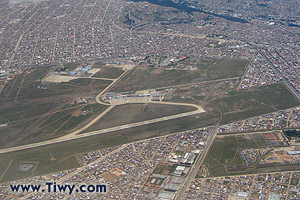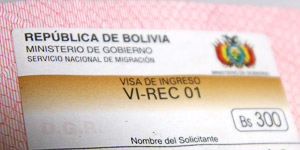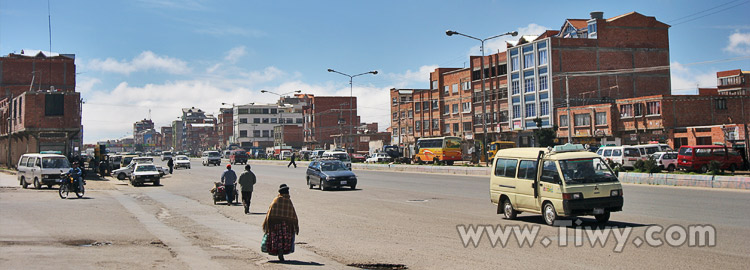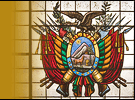Bolivian metamorphoses
Page 1 of 4

The airport has hardly changed: dimly lit halls, narrow corridors. However, new shades appeared in decoration of impersonal walls. Instead of officious portraits of the acting president there prevail bright, with dominating red colour posters that call for just social reforms and new constitution. Some of the posters feature smiling first Indian president of Bolivia Evo Morales in friendly embraces of Fidel Castro and Hugo Chavez.

Yes, I have just crossed the threshold of the country and can't help wondering! In Bolivia that I knew 17-18 years ago Americans felt themselves at home, whereas Fidel Castro, after a dramatic guerilla epopee of Che Guevara, was a non grata person for the Bolivian authorities.
Bolivia has evidently become a different country.
After completion of borderline formalities I took a taxi to La Paz. At one o'clock in the morning the streets of El Alto were absolutely deserted: neither pedestrians, nor vehicles, occasionally you could see a light in some windows. El Alto – is a city of working people, who early start their working day. That is why – there is no night life: good sleep first of all! About twenty years ago El Alto used to be a suburb of La Paz, supplier of cheap labour force. Nowadays it is a full-grown city with the population exceeding one million. City economy is on the rise, industrial enterprises work at full swing. Former clay shacks yielded to brick houses that are not distinguished by architectural extravagances, but they have gas supply and other conveniences.

It is worth reminding that residents of El Alto used to be in the front lines of struggle against privatisation of water supply system and selling of gas abroad at cheap rates. They also turned to be a decisive force that brought down the government of Gonzalo Sanchez de Lozada (Goni), who, with an «iron hand» used to carry out neo-liberal reforms in the interests of foreign monopolies. In October 2003 the «alteños» blocked the highway going to La Paz, blocked the airport and called the Bolivians to resist the antinational plans of Lozada. The latter gave order to use force. In the result – dozens of victims and shameful escape of Goni and his ministers to Miami.
No wonder that «alteños» are supporters of Evo Morales. The city cells of the Movement to socialism Party (El Movimiento al Socialismo / MAS) Indian organisations of left orientation, «Committees of neighbours» (El Comite de Vecinos) supported him in his difficult road to the presidency, and they support today – after two years of Evo staying at power.

In the internet hall of the hotel I met a photographer from Moscow R. who came to La Paz to meet his Bolivian friends and «active rest». His friends remained from the time, when his father-diplomat used to work in the Soviet embassy, and he himself studied in the privileged, as per the Bolivian standards, lyceum «Los Pinos». By «active rest» R. meant a trip around the country with a heavy suitcase stuffed with photolenses, photographic tripods and other equipment necessary for full-fledged creative process. R. planned to make a picture spread not only about La Paz, but also about the Bolivian remote areas. He complained that at the very last moment he had to cancel his trips to departments Santa Cruz, Beni, Tarija and Trinidad because they were announced a disaster area: for the complete week it was heavily raining there.

My new friend decided to restrict himself with a trip around altiplano — to the archaeological complex Tiwanaku, to the Titicaca lake, to the towns Oruro, Uyuni, Potosi and Sucre. I imagined my own route something like this too. So we arranged to go together: mutual safety will not be redundant. I liked his meticulous, a few pages long plan of the trip. Everything was thoroughly described, there were variants just in case of any flops on the route. Later I was not sorry that I chose R. as my trip companion. He sincerely liked Bolivia, communicated with Bolivians with pleasure, surprising them by local words and expressions, borrowed from his «lyceum past».
